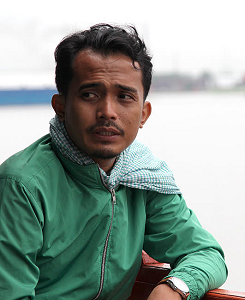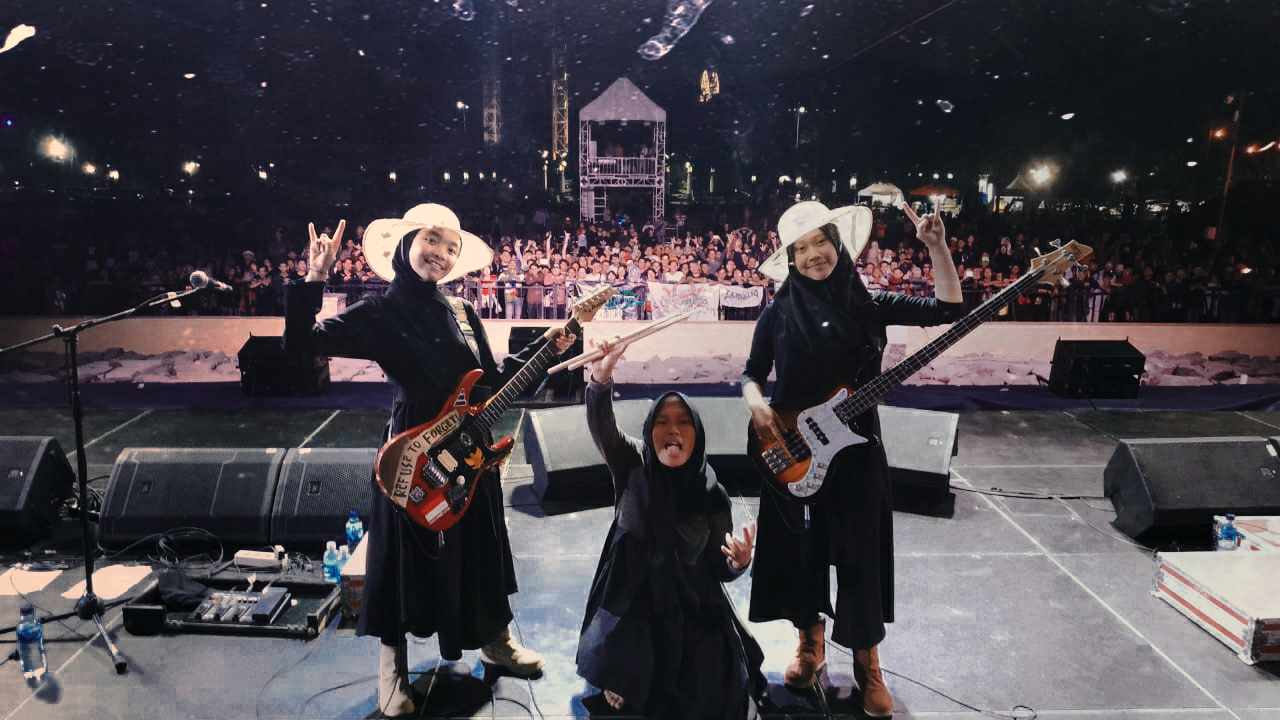Projects
Voice of Baceprot
Yosep Anggi NOEN
- Indonesia
- 90min
- DCP
- color
Synopsis
Three hijab-wearing Indonesian schoolgirls Firda (19), Siti (19), Widi (19) formed a heavy metal band called Voice of Baceprot in 2014. Indonesia is the world's most populous Muslim nation and also a place where pluralism and religion often rub against each other, and it’s getting bigger. Imagine a valley, sterile from an ear-splitting city, three young girls carry cheap electric guitars into a bedroom-turned-studio with a brick supported drum set. They practice music every day after school for two-three hours in their humble studio. No wonder they are better musicians compared to other teenagers their age. One day, Tom Morello (guitarist of Rage Against the Machine) noticed their already viral video performance of one of RATM’s song. The band makes headlines everywhere. Prayers from mosque orchestrated the activities of adolescents in the village. Some of them dream big, but most can only dream of escaping poverty by marriage. Firda, Siti, and Widi decide that they are also dreamers; to be professional musicians. They set an example to dream big to the adolescent villagers, that life is an endless choice. There’s eager empowerment in the midst of metal genre stigmas. VoB travels a long and winding road, from tiny stages, school gigs, and finally prestigious stages.
Review
I want to make a film about Indonesian youths in general. I see VoB as the youths’ response towards what it means to progress in this modern digital society, and what it takes to break away from the existing moral standards. These kids learn music from the internet. In their far-flung village, accessing the internet means having to go to a specific spot where the reception is good enough, or stay late at the school to access them. They also learn from the books at the tiny library in their village. I have have observed the beginnings of support from their friends who also want change to occur in their poor society. My question is: why are only three kids striving for those changes to happen? From the last two years of research and filming, I don’t see any other teenagers who are open to changes except for the three band members. In Indonesian society, why do changes only happen in small sparks? I remember one day, I was filming Firda playing her guitar on the stage at her schoolyard. She shouts into her microphone, “For you girls back there who are always kept away from the stage, I am here to stand on your behalf.” This film will also show the ridiculously huge size of Indonesia. This might look cliché, but we will travel hundreds of miles to accompany VoB as they buy strings for their guitar, and another hundreds of miles trip to reach their concert venue in the city. In the broader sense, the camera will show us the ironic gap between the villages and the city. On the other hand, it is also a film about minuscule details. The camera will witness the intimacy of friendship and family as each of the bandmates fear the same thing: separation from their family as their musical career is rising. The parents are concerned about the future of their daughters. Widi, Firda, and Siti dream big, but they are also haunted by the anxiety of leaving their homes and families. In these intimate moments, the camera will be faithfully observant, close and personal, the music fades out to be replaced by the natural sounds around their village houses.
Director
-

Yosep Anggi NOEN
Credit
- Producer율리아 에비나 바라
Yulia Evina BHARA
